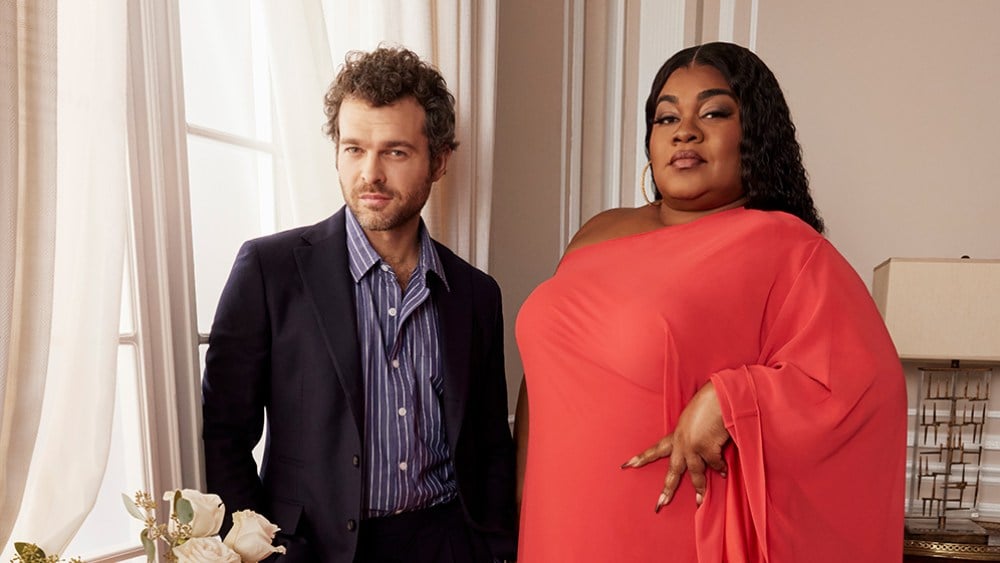ALDEN EHRENREICH: How did you get involved with Alexander Payne?
DA’VINE JOY RANDOLPH: I recently found out that Alexander had me in mind [for “The Holdovers”] initially, but the studio said, “Let’s find 30 actresses with bigger names!” He did his due diligence and went through all of them and said, “OK, I did it. Now can I call Da’Vine?” We read a scene together, and he said, “I’m cool if you’re cool.”
You’ve had a hell of a year with “Fair Play,” “Cocaine Bear” and “Oppenheimer.” What was it like making all these?
EHRENREICH: I did “Cocaine Bear,” then “Fair Play,” and then “Oppenheimer,” and then my short film “Shadow Brother Sunday.” I did the Marvel series “Ironheart” right after that.
RANDOLPH: You were on a roll.
EHRENREICH: I hadn’t worked during COVID, so this felt good. Then projects just started piling up, which I’d never experienced.
You’ve been living like this for the last few years. “The Idol” came out this summer — what was your takeaway from that?
Love Film & TV?
Get your daily dose of everything happening in music, film and TV in Australia and abroad.

Alexi Lubomirski for Variety
RANDOLPH: When I came into the equation, there was already a version of the show that was done. All they told me was, “The first version, we didn’t really love it. Creative differences.” We hear this all the time. Filming with Sam Levinson was awesome. Then an article comes out basically exposing what they think was happening on set. The Catch-22 is, I’m actually very proud of the character that I created. My contribution to the project was able to pierce through.
When you got the script for “Fair Play,” what were you thinking as an actor and also as a man entering this world?
EHRENREICH: My favorite experiences are working for writer-directors. It’s coming from a place in them that’s really deep. What I felt with Chloe Domont and “Fair Play” is that this was a story coming out of her real feelings and who she is — a lot of unresolved feelings, in this case. It made it feel messy. The world of “Fair Play” is really intense. The movie’s her talking about her experiences in show business, but she set it on Wall Street.
RANDOLPH: The themes that were coming up, that triggered me as an actor. This weird thing of gender play. And you would think it wouldn’t be a thing in acting, but sometimes it very much is. Have you ever been in a relationship with another actor?
EHRENREICH: Mostly, yes.
RANDOLPH: There’s a convenience to it.

Alexi Lubomirski for Variety
EHRENREICH: When two actors meet each other, you have that thing where you want [to be seen by the other]. It’s interesting with “Fair Play,” because the characters are also people focusing on getting ahead. That’s what they’re thinking about, talking about, living and breathing. It almost becomes a religion, and you’re kind of praying to a false god.
You played a chef in “The Holdovers.” Did you make any of the food?
RANDOLPH: That was my deal breaker — I had to do the cooking. I need to be working with my hands. Over the course of the entire movie, I make oatmeal, a soup, and I roasted a chicken. On days when we’re eating in scenes, we didn’t have craft services. We really sat down and had dinner.
EHRENREICH: We meet your character after the most tragic moment in her life. How did you prepare for that?
RANDOLPH: From the first conversation with Alexander, I understood he was the type of director that wants to dig in. He shipped me two big boxes of cigarettes with a note that said, “Get to it!”
I asked for swatches of the fabric [for my costumes] because, given that Mary was this matriarch, I needed people to feel like they wanted to cozy up next to her. I needed the textiles to be that way, or the hair. As a woman of color, I always pay homage to my ancestors and elders — in the industry in particular — who have paved the way. It could be a hairstyle or a gesture that I lay in there. I always leave these little subliminal gems.
Variety Actors on Actors presented by “Saltburn.”
From Variety US































